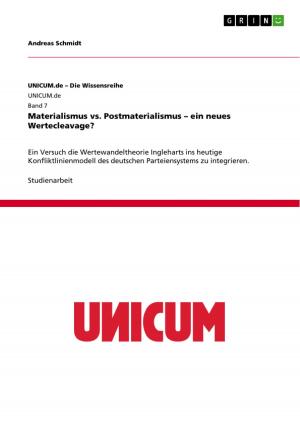From structural adjustment to privatisation in Nigeria
Nonfiction, Social & Cultural Studies, Political Science, Politics, Economic Policy| Author: | Adewale Stephen | ISBN: | 9783656766544 |
| Publisher: | GRIN Verlag | Publication: | October 10, 2014 |
| Imprint: | GRIN Verlag | Language: | English |
| Author: | Adewale Stephen |
| ISBN: | 9783656766544 |
| Publisher: | GRIN Verlag |
| Publication: | October 10, 2014 |
| Imprint: | GRIN Verlag |
| Language: | English |
Research Paper (undergraduate) from the year 2014 in the subject Business economics - Economic Policy, grade: A, Obafemi Awolowo University (Post Graduate), course: History, language: English, abstract: Since the arrival of the International Monetary Fund (IMF) at its shores via the great IMF debate of 1985, Nigerian leaders have learnt to demonise public enterprises, castigating them, facilitating their sales to cronies of government officials and using the channels of mass communication to impress upon the citizens that these enterprises are of no use. Today, the general wisdom is that the state should completely recede and that private ownership of the means of production is the only viable approach to efficient production of goods and services, economic growth and development. However, the same factors that led to the collapse of the public enterprises are also afflicting the privatisation exercise. In this paper, the practice of privatisation meant to promote private means of ownership and in turn increase the production capacity of every sector is critically examined. Focusing on the wave and sad experience of privatisation in a period of 2000-2012 which was riddled with corruption, nepotism, lack of good corporate governance and incompetent manpower in the country, the paper concludes that total privatisation of every sector will never solve the economic impasse of Nigeria.
Adewale Stephen is a full time researcher based in Nigeria, where he researches on Nigerian Foreign Policy and other International Relations subjects. Stephen is the author of two books and over a ten articles.
Research Paper (undergraduate) from the year 2014 in the subject Business economics - Economic Policy, grade: A, Obafemi Awolowo University (Post Graduate), course: History, language: English, abstract: Since the arrival of the International Monetary Fund (IMF) at its shores via the great IMF debate of 1985, Nigerian leaders have learnt to demonise public enterprises, castigating them, facilitating their sales to cronies of government officials and using the channels of mass communication to impress upon the citizens that these enterprises are of no use. Today, the general wisdom is that the state should completely recede and that private ownership of the means of production is the only viable approach to efficient production of goods and services, economic growth and development. However, the same factors that led to the collapse of the public enterprises are also afflicting the privatisation exercise. In this paper, the practice of privatisation meant to promote private means of ownership and in turn increase the production capacity of every sector is critically examined. Focusing on the wave and sad experience of privatisation in a period of 2000-2012 which was riddled with corruption, nepotism, lack of good corporate governance and incompetent manpower in the country, the paper concludes that total privatisation of every sector will never solve the economic impasse of Nigeria.
Adewale Stephen is a full time researcher based in Nigeria, where he researches on Nigerian Foreign Policy and other International Relations subjects. Stephen is the author of two books and over a ten articles.















